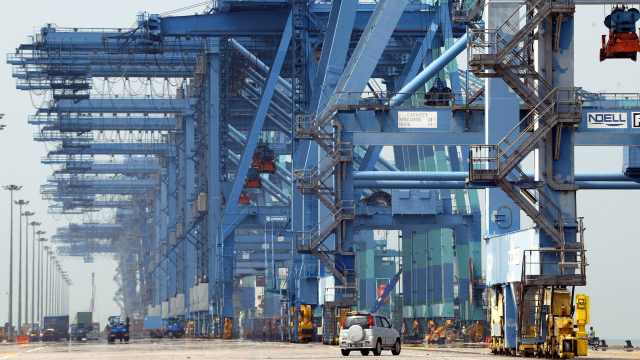The internet keeps a close eye on what companies like Apple, Samsung and Sony import out of Southeast Asia, since those components hint at products coming down the pipeline. The US Department of Labor keeps a close watch too, but for a very different reason: uncovering “modern-day slavery” by the factories that make electronics.
This year, the US Department of Labor commissioned a study about the frequency of forced labour in Malaysia by the labour rights group Verité. The report issued yesterday is culled from interviews with more than 500 workers at hundreds of factories — and it’s a horrifying look at the provenance of the electronics you may own.
According to Verité, migrant workers who arrive in Malaysia to work pay fees just to obtain their jobs, and often spend up to a year paying off those entrance fees. Employers will frequently keep their passports to restrict their movement. They live in cramped, unsafe quarters and are under constant surveillance. Wages are often far lower than first agreed upon. A few of the numbers that Verité reports:
- 94% per cent of foreign workers in the sample reported that their passports were held by the facility or their broker/agent, and 71% reported it was impossible or difficult to get their passports back when they wanted or needed them.
- 92% reported feeling compelled to work overtime hours to pay off their debt, and 85% felt it was impossible to leave their job before
- 95% of workers who borrowed money to pay recruitment fees took longer than three months to pay off the debt, and 50% took longer than a year.
- 22% per cent of foreign workers were deceived about their wages, hours, overtime requirements or pay, provisions regarding termination of employment, or the nature or degree of difficulty or danger of their jobs.
- 30% per cent of foreign workers slept in a room with more than eight people, 43% of foreign workers said that there was nowhere they could safely store their belongings, and 22% of foreign workers said that they did not feel safe in their housing.
We spend a lot of time talking about consumer electronics, but we tend to focus on a very specific timeframe in the device’s lifespan. Because migrant workers have no agency to advocate for themselves or speak out, outrageous human rights violations continue despite a mountain of evidence that they’re occurring.
For most of us, our phones are “born” the day we unsheathe them from the packaging. They “die” when we trade them in or throw them away. But in fact this is just the middle part of the lifespan of our gadgets, which begin in the hands of migrant workers often forced to do the job. And once they leave our possession, they’re torn down by poverty-stricken workers in developing countries. The time spent your pocket is just the middle of the story — the beginning and end are much harder to stomach. [Verite; The New York Times]
Picture: Malaysian port by AP Photo/Lai Seng Sin
